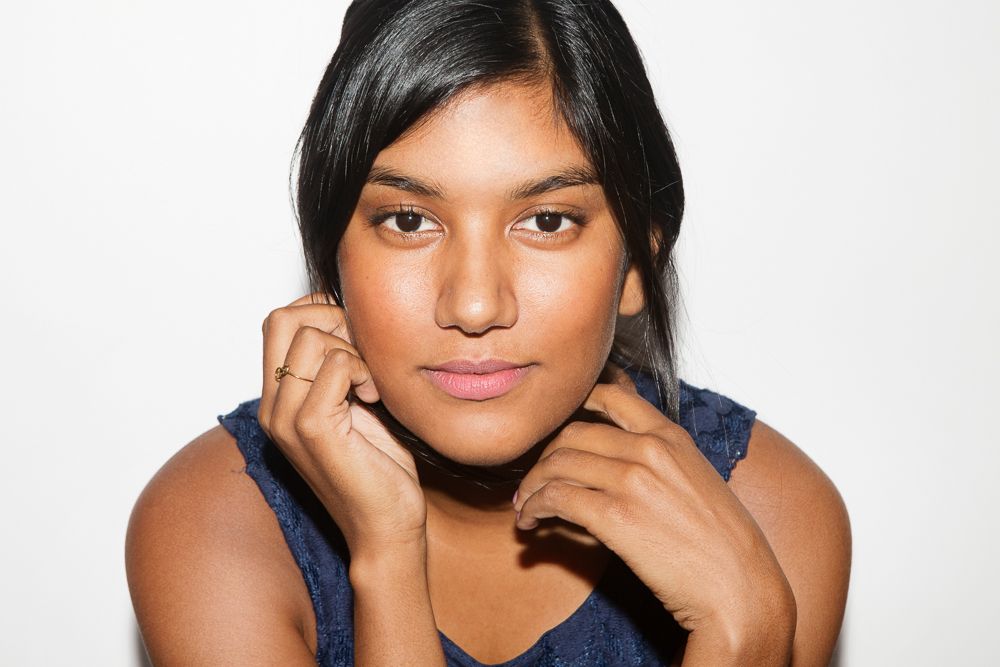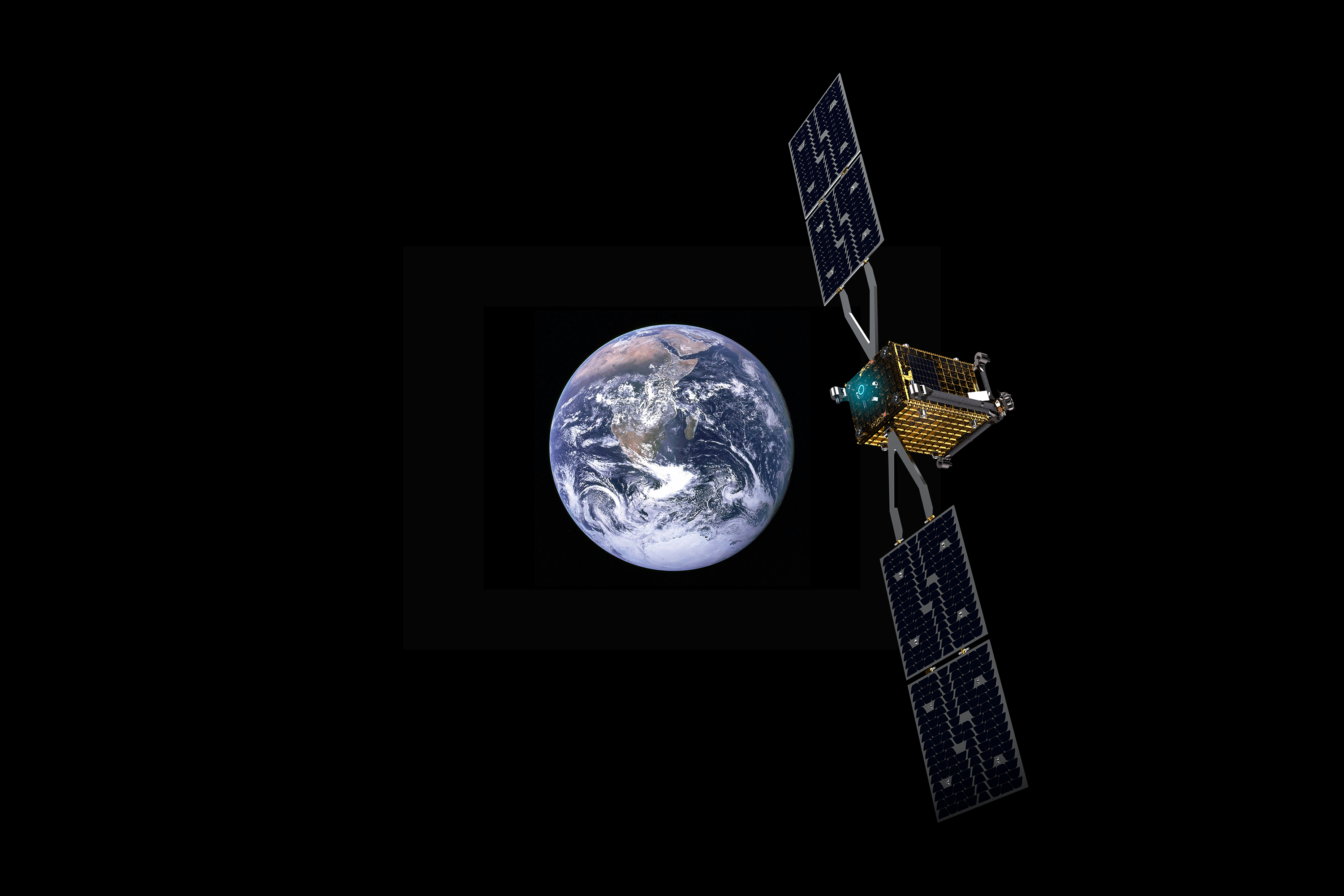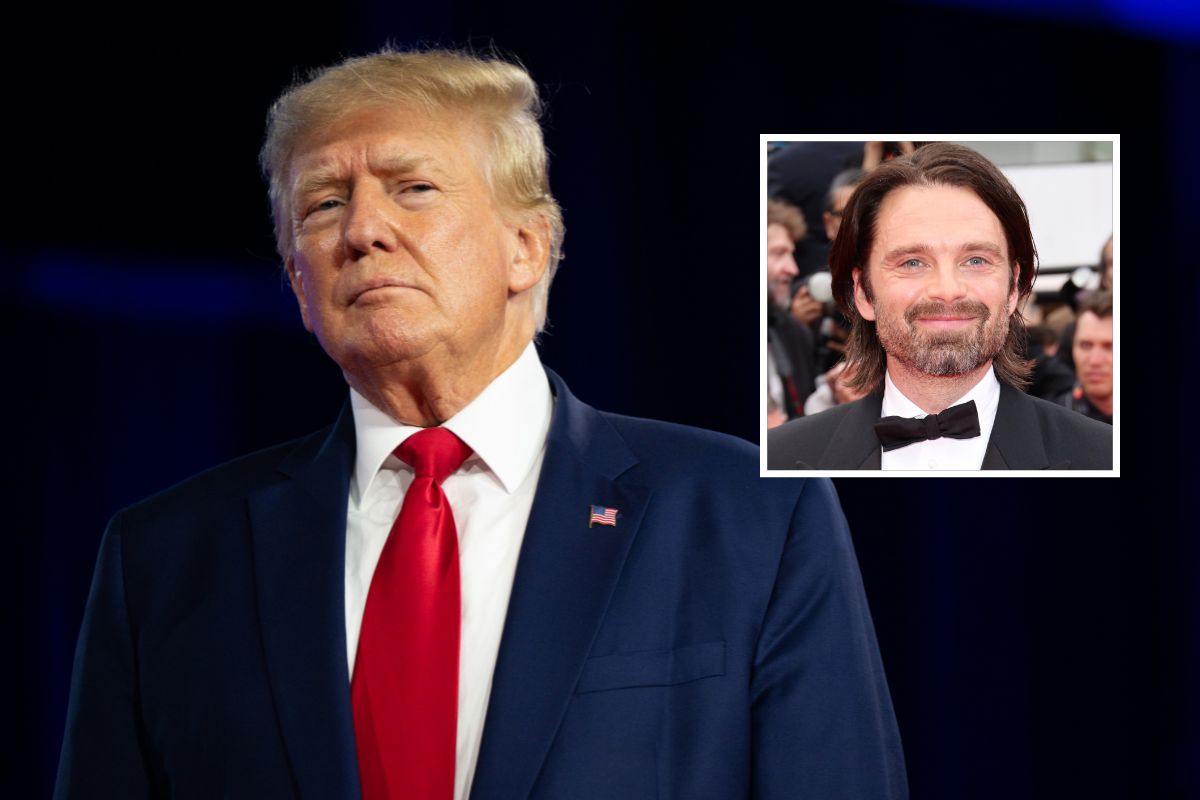
No band in history has written a lyric that more aptly describes the anxiety for perfection quite like Radiohead, in its first hit, "Creep": "I want to have control / I want a perfect body / I want a perfect soul." More than 20 years after Thom Yorke penned this confessional line, the idea of perfection is still fraught: It's often a goal, an obsession and, in some cases, a coping mechanism for many people.
In her harrowing new memoir, Controlled, 24-year-old author and journalist Neesha Arter (The New York Observer, The New York Times) writes—in poignant detail—how an obsession with achieving bodily perfection was a damaging way that she dealt with trauma at 14. Simmering in blame and confusion after she was raped by two former friends, Arter attempted to push away the horrific experience by focusing on losing weight and tried to disappear completely through anorexia. What ensued speaks volumes about our contemporary image-obsessed culture, one that also wallows in silence and shame.
"There is a common superstition that 'self-respect' is a kind of charm against snakes, something that keeps those who have it locked in some unblighted Eden, out of strange beds, ambivalent conversations, and trouble in general," Joan Didion wrote in her celebrated essay "On Self-Respect." She continues: "It does not at all. It has nothing to do with the face of things, but concerns instead a separate peace, a private reconciliation."
This private reconciliation Didion wrote about in 1961 is still something that's so difficult to grapple with. "On Self-Respect" is a favorite essay of Arter's; fitting, as Controlled speaks so precisely to how difficult it can be to shed self-loathing and blame, and what happens when one can recognize the need for help and come out the other side stronger and more capable. Upon the release of her memoir Tuesday, Arter spoke with Newsweek about survival and speaking out.
First of all, thank you for writing this memoir. With the Bill Cosby accusations so visible in culture right now, it's high time for your book to come out.
I know. I agree. I think it's good timing. I love the New York mag piece. Did you watch the videos? The one where the woman said she was doing it for her daughter and started crying? These people are my heroes.
Your book is super-detailed, down to the specifics of clothes and conversations. Did you keep a diary back then?
The beauty of being young and writing a memoir.... I wrote a draft when I was 18, which was just four years later. And I'm still very close friends with the three friends [Jane, Emma and Brad] I put in the book. The character Brad is my best friend to this day. So when I was writing it, he was reading it along and helping me. But it was hard to forget. To this day I can still remember a lot. Specifically the year 14.... I don't think I'm going to forget that.
Grappling with what happened is harrowing, of course, but was it also a fight to get this book published?
Here's a bit of the process: I wrote it when I was 18. I was lucky, I had a phenomenal mentor who was the head of the creative writing department. I was a creative writing major. He always believed in me. I don't know if this would have been possible without him. So I kept working on it—it was my senior thesis. It's funny, when I first wrote this book I thought, If I can get this book published, I can get over it. I can move on with my life, because I never thought about it for four years. I was 14. When the legal case ended at 15, I thought, OK, this is done. Pushed it away, pushed it away. Then brought it back up, went to therapy. I was always trying to get a [literary] agent, but I was in L.A. and that's not really the place for that.
So when I was about to graduate, I came [to New York], had a couple of interviews and was like, OK, I'm going to do it. I moved to New York, but didn't know anyone here. At one point I worked with an editor who...wasn't very nice. It's hard because not everyone is going to believe in you. You have to believe in yourself more than anything. People think that these are so female, women's issues. No. This is a human issue.
Women are taught vigilance from the day they are born, and men on the other hand aren't instructed to not rape.
I know. [Related to that] I have a good story about the cover, which I love. I was with Katie Ford [former CEO of Ford Models, who wrote the book's foreword] at a book party in the winter. And this older man, who is a big publisher...I had just shot this, and it didn't have any of the typography. She said, "Oh, I love the image but let's poll the room." And I said, "Oh, I don't know if I want to show all these strangers…" She asks this man and introduces me, and says, "She just wrote a great memoir about a rape that happened when she was 14." And he said, "Were you raped because you were wearing that short skirt?" Direct quote. And I died when he said that to me. People have been nice, but then...he said it, and then he said it again.

I would hope that many parents read this book. Have yours?
I don't really care what anyone thinks of this book except my parents, and they love and support me, so it's good. But it's been emotional. I stand by it all. They have read it. My dad was very unemotional, so he said, "Loved it! I loved your book! It's going to sell." Thanks, Dad. My mom...it was hard for her. I think she blames herself for [what happened]. But it's not anyone's fault. You can't protect everyone from everything in life. You have to let people live it.
But I have no idea, I'm not a mother. One of my best friends struggled with anorexia, and her mom read this. And she told me it really, actually helped a lot. It's hard to know what's going on in your kid's mind, especially at 14.
As a teenager, you're already fighting with your parents so much. Reading your book, I got the sense that your parents were so hinged on getting justice, but they didn't realize...
They didn't get it.
Right. Since you chose not to testify when this happened, is "Controlled" a form of seeking justice for you?
When I first wrote the book, I thought a lot about whether I wished I went to court or got justice. I do really think I've made peace with it. People always say, "Living well's the best revenge." But I don't want to live my life out of revenge. I just want to live my life for me. I was so young; I can't even begin to imagine what it would have been like to face all these people that didn't believe me in the first place. I don't want to...no. I couldn't do it. I don't think I could do that at 24. It's just not worth it to me. I mean, I hope that these guys are not doing that to other girls, but...I don't know.
What is justice, even? I don't know anymore, because this is such a losing case. My agent's a lawyer, and we've talked about it a lot. He's told me I wouldn't have won this.
Wow.
There wasn't enough evidence. I mean, going back to Bill Cosby. On The View: "Innocent until proven guilty."
He's been accused for decades, and it took [comedian] Hannibal Buress telling a joke about him to make this visible.
The shame has got to go, especially when [none of the women] did anything wrong. This is absurd. I was at this photo shoot for something, and this makeup artist was asking me if I was nervous for the book to come out. I said, "Well, yeah, it's a little nerve-wracking." And she says, "Do you think guys will think you're difficult to date because you're damaged?" I was, like, This is crazy. If you're sexually assaulted, it's not your fault. That was upsetting. But if I listened to half the things people said to me, I wouldn't leave my house in the morning.
I have to say that some days, I wake up feeling quite empowered by these platforms and the myriad ways people can speak out and can have public discourses on a global scale about taboo issues such as eating disorders. At the same time, the Internet can be a terrible cesspool. You went through this when the Internet wasn't as developed but were consulting message boards that were fueling your anorexia, so I was curious about that transition in the 10 years since.
I spoke at the Planned Parenthood national youth conference last month in D.C. I had all of these teen girls come up to me and say, "Thank you for writing this book, I'm a survivor of sexual assault as a child, and no one talks about it." There was so much love, and that was the point. If anyone wants to bring me down about it, I'm not going to pay attention to it. I love social media—until I start getting the major hate. Get back to me.
But now that the book is coming out, I'm going to be a contributor to this eating disorder recovery blog and do this podcast. You can really find a group for whoever you are. It would be nice to find that in-person, but there are so many platforms for whatever you're going through. Which is good, especially if you're a teenager.
I worry about the future, especially where it concerns teen girls.
This book is for teen girls, and the next generation. Sadly, I don't think this problem is going to go away soon, but I don't want them to feel alone. I know that's cliché, but this is truly the reason why I wrote this book. If I had read this at 14, I would have said, "OK, someone else feels this way." A lot of people tell me, every day, that they were raped and never told anybody.
Something your book really makes explicit is how, culturally, we have a very concerning relationship with body image and food, and it's worse as a teen girl.
I know a lot of people with eating disorders. In college I knew a lot of people with eating disorders. The first chapter is personal, but in a lot of ways I was more nervous to put out all the anorexia stuff in, because no one knows any of those things. That gave me more anxiety, I think. I don't think there's a book out there about eating disorders that is honest and also says, This is not pretty. It's miserable. People have a glamorous image of anorexic girls and their idealistic body type. What is the cost?
It's hard to work so hard on something that, now that's it going to go out into the world, will be interpreted in all kinds of ways. Which is tough, when it's this close to you.
I love this book and am so happy I can give it to people. I have a family member who's struggled with anorexia, and she read it. I think it can help a lot of people feel less defeated in the world. I have no idea what's going to happen: I'm just holding on. But the hardest part of this book has been hearing people's stories. That makes me sad. This is a worldwide epidemic: It's rape story after rape story. It's hard to separate it, and I think that's the biggest thing I have to learn.
On another note, let's talk about your connection to Joan Didion and the epigraph at the beginning of the book: "We all survive more than we think we can."
I think it's from an interview she did. Play It as It Lays is my favorite novel. I think for me, so much of my high school was so...vacant. I wasn't ever there. At the end of [Play], she says, "I know what nothing means, and I keep on playing." There are so many lines from that book that I could relate to at that point in my life. When I read it, I felt like a character in that book.
My favorite essay of hers is "On Self-Respect." That is something I want every teen girl to read. Self-respect is the most important thing in the world, over love and friendship. The relationship you have to yourself...that's what I've learned from all of this. The way I see myself, the way I talk to myself...I can't emphasize enough how important that is. Be on your side! Bottom line.
But it's taken me time. My professor said, "You need to enjoy your own company," but it wasn't until I was in college and I was in London—and I kept a diary at that point—that I realized what that meant. I really do enjoy being myself. I think about that a lot: how differently you see others and how you see yourself. I tell people they're beautiful, because I think they need to hear it more. There needs to be more love in the world.
What words would you offer to someone who's been through something like this?
It's very important to not blame yourself. It never crossed my mind that it was my fault until everyone said it was. I wouldn't think like that. I'm sitting here crying, what? So it would be: Don't blame yourself, and tell someone you trust. Dealing with trauma is not easy, and some people turn to drugs. Have you read Lucky by Alice Sebold?
I haven't.
It's about her rape at 18, and the legal case. I worship her. But the point is, when something traumatic happens it's going to come out, in some way. Anorexia, that was my coping mechanism, and that happened quickly after [the rape]. She became a heroin addict later in life. We all deal...there's no physical way to just push it away. It's a process.
So I would say, Tell someone you trust. You don't have to deal with this alone. I tried to, and it was a slow path to self-destruction. And there was nothing pretty about it. What would have happened if I accepted a little help? You can't do it alone. I couldn't have gotten here alone. But you can do it.
Uncommon Knowledge
Newsweek is committed to challenging conventional wisdom and finding connections in the search for common ground.
Newsweek is committed to challenging conventional wisdom and finding connections in the search for common ground.
About the writer
Paula Mejia is a reporter and culture writer. Her work has appeared in The Guardian, Rolling Stone, The A.V. Club, Pitchfork, ... Read more





